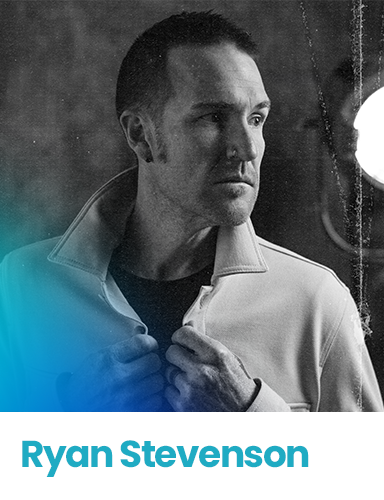
7 Reasons Your New Year’s Resolutions Go Up In Flames (And How to Change That)
So, you’re prepping your list of New Year’s resolutions, but you’re already suspecting they’ll go up in flames within a few weeks into the new year.
If you know the feeling, you’re not alone. Over 80% (some studies say up to 92%) of New Year’s resolutions fail.
Why?
I mean, you try, but it seems so difficult to actually make progress in life and leadership. And before you know it, this year feels exactly like last year. Except, maybe worse, because you’re actually busier than you were before.
So, maybe:
- You’re behind at work.
- You’re back to eating pizza.
- Your calendar is already out of control.
- You missed the gym twice last week.
- You promised you wouldn’t bring work home, but you didn’t tuck your kids into bed more than twice last week.
- You’re no further ahead on those big projects, either.
And, you’re wondering how you will get it all done and not sacrifice your family or your health.
What’s going on?
Here’s the reality:
The next year will be exactly like every other year unless you change more than your intention.
I’d love to show you how.
It would be great to crush your New Year’s resolutions not once, wouldn’t it? And maybe develop a system for repeating that year after year.
Here are 7 reasons most people fail at their new year’s resolutions and some practical help on how to reverse that.
1. Your system isn’t designed for the demands you’re facing
Believe it or not, you have a system. Even if you can’t name it, describe it or identify it, you do.
As the adage goes, your current system is perfectly designed to give you the results you’re getting. And let’s get really honest: if you can’t name your system or describe it, it’s probably a bad one.
Every leader has a system, and if you can’t name it or describe it, it’s probably a bad one.
If you look at highly effective leaders, you’ll realize they also have a system. It’s an intentional system. They design it. They tweak it. They understand it. And they’re constantly changing it to keep up with the demands that life and leadership keep putting on them.
What a lot of leaders don’t realize is that your system has to keep changing to produce better results in life and leadership because the world keeps changing, your job keeps changing, and your family keeps changing.
If you have another baby, that changes your reality massively. Yet most people don’t intentionally overhaul their approach to leadership to cope with it (life…yes, but leadership, no, except for thinking, Now I have to get more done in less time, which is not an overhaul).
Or if your church or organization grows or you add staff or responsibility to your plate…that means your old system (even if it was a bad one) will fail to keep up.
When I was a young leader, my system was “more people equals more hours” and “don’t worry, I can handle it.”
That was a terrible system, to begin with, and eventually, it led me into full-on burnout a decade into my leadership.
Your system is actually a key to your success. If you don’t change your system, success is almost impossible to achieve.
Moving along, here’s another reason resolutions fail.
Your system is actually a key to your success. If you don’t change your system, success is almost impossible to achieve.
2. Resolutions are essentially intentions
The problem I had early on in making resolutions is that my resolutions were intentions. They were things I wanted to do, but I actually had no plan on how to accomplish them.
What’s lacking for many people is a strategy.
Your strategy, not your intention, determines your success. Many people intend to spend more time with their family, to be less scattered at work, to manage their time better, and to ensure their top priories get accomplished, but they haven’t found a strategy to get them to that place.
When you look at your resolutions, ask yourself: What’s my strategy?
No strategy = almost guaranteed failure.
And even if you succeed, it likely means your success was a fluke, or grace, or accidental. Which also means it’s impossible to reproduce or scale.
Your strategy, not your intention, determines your success. No strategy = guaranteed failure almost every time.
3. Other people hijack your priorities
So maybe you’ve moved beyond just intentions and started working on a system.
But then life happens. Your phone starts buzzing. People knock on your door or hover over your cubicle.
Everybody just needs five minutes of your time, but by the end of the day, you realize that various people took all your time. And you’re way further behind than you were at 8 a.m.
Everybody just needs five minutes of your time, but by the end of the day you realize that various people took all your time.
Often we design our systems to work in perfect conditions, and life is anything but perfect conditions.
One of the key problems leaders face is the steady stream of emails, texts, phone calls, knocks on the door, and other “small” interruptions.
Here’s what’s contained in every single one of those incoming communications: someone else’s priorities.
Tell me if this isn’t true: No one ever asks you to accomplish your priorities. They only ask you to accomplish theirs.
If you’re a preacher, nobody emails or texts you to ask you to write a killer message. Nobody cancel’s their meeting with you and says, “Just thought you should have more prep time.”
If you’re an entrepreneur working on a key project, how often does anyone text you and say, “Hey, I want to give you three hours of focused, uninterrupted time to get it done. Let’s reschedule our week?”
You need to be the champion of your priorities. Nobody else will be.
No one ever asks you to accomplish your priorities. They only ask you to accomplish theirs.
4. You’ve added, but not subtracted
Often when you want to do better, you add things to your ever-more complex life. That’s what goals and resolutions are by nature: additions.
And when you do that, you sabotage your success.
Let’s be honest, adding to your life is easier than subtracting until you hit the wall of overwhelm. Not only do you get completely overwhelmed, but you also diminish the value of everything you’re trying to do.
As Craig Groeschel put it, if everything’s important, nothing’s important. If everything’s a priority, nothing’s a priority.
If everything’s important, nothing’s important. If everything’s a priority, nothing’s a priority. @craiggroeschel
Leaders who reach their goals are better at subtraction than addition. They subtract more things from their life than they add.
After all, you’re probably only truly great at one or two things. Focus more of your time on those, and cut things that are average to good.
Subtraction is often more powerful than addition when it comes to accomplishment.
Leaders who reach their goals are better at subtraction than addition. They subtract more things from their life than they add.
5. You haven’t looked at your patterns
At the heart of your system (whether it’s intentional or not) are patterns.
If you really study your everyday life, it really consists of repeated patterns. You likely do the same thing every morning as soon as you get up.
You follow the same routine most days at work, and your weeks and seasons have a rhythm to them.
This is true of everything from the hour you start work, when you take meetings, when you eat your meals, how you answer emails, how you reply to texts, to the settings you allow on your phone (do you ever turn it off on purpose?). This is all patterned behavior.
Even if you say, No, I like to change it up, I resist patterns, wonderful. You have a pattern of random chaos.
The question is: Are your patterns helping you or hurting you?
If you have unrealized goals and dreams, your patterns are hurting you, not helping you. Because if your patterns supported your dreams, you would have accomplished them.
Any system you have that doesn’t stack your daily patterns in your favor is bound to make you lose. Don’t miss that.
If you have unrealized goals and dreams, your patterns are hurting you, not helping you. Because if your patterns supported your dreams, you would have accomplished them.
6. You left your calendar out of the equation
Open your calendar.
Do you see your goals scheduled right into the rhythm of your every day?
Probably not.
An amazing thing happens when you decide to schedule your dreams daily: they happen.
One of the biggest changes I made after I burned out 13 years ago was to completely redesign my calendar according to repeating patterns that help me accomplish my goals.
An amazing thing happens when you decide to schedule your dreams daily: they happen.
7. You’re going it alone
There’s a strange paradox happening in our culture. Thanks to technology, we’ve never been more connected. Yet talk to most leaders, and they’ve never felt more alone.
It’s hard to make changes that stick when you’re isolated.
Here’s the principle: When you get others committed to your progress, you make more progress.






















































































































